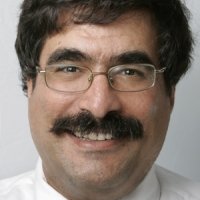The Future of Science and Environmental Journalism
Science Journalism's Hope and Despair ‘Niche' pubs growing as MSM circles the drain
By Curtis Brainard
(Excerpted with permission from Columbia Journalism Review's The Observatory)
About a year and a half ago, I began reporting on a story about the "state" of science journalism, which may finally see the light of day in an upcoming issue of CJR. But I was flattered to hear it mentioned yesterday by Associated Press science reporter Seth Borenstein during an excellent panel discussion about the future of the field.
I interviewed Borenstein for the story in the summer of 2007, at which time he told me that he disagreed with the notion, shared by many of his colleagues, that science journalism was in a state of crisis. Thursday morning, Borenstein affirmed that he has since changed his mind, citing numerous and seemingly senseless job cuts around the nation over the last year. Among others, he pointed to veteran space writer Craig Covault, recently laid off by Aviation Week & Space Technology when it closed its Cape Canaveral bureau (of all places). "The man covered Apollo!" Borenstein said.
Such dismay was common at the event, which was titled "The Future of Science and Environmental Journalism," and organized and hosted by the Woodrow Wilson Center for International Scholars in Washington, D.C. (I watched via live Webcast.)Borenstein's co-panelists included former CNN executive producer Peter Dykstra, laid off in December when the network cut its entire science team; Elizabeth Shogren, an environment correspondent for National Public Radio; and Jan Schaffer, the executive director of J-Lab, the successor to the Pew Center for Civic Journalism. Yet the despair applied mostly to the decline of traditional (or "mainstream," if you prefer) newspapers, magazines, and broadcasts. The other half of the conversation involved reasons to be (guardedly) optimistic about the growth of "niche" science publications based primarily online.
Read More...
Speakers

Former Executive Producer, CNN (Science, Technology, Environment and Weather), Current Contributor to Mother Nature Network (MNN.com)

Hosted By

Environmental Change and Security Program
The Environmental Change and Security Program (ECSP) explores the connections between environmental change, health, and population dynamics and their links to conflict, human insecurity, and foreign policy. Read more
